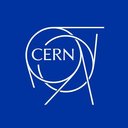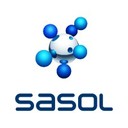CERN
Scientific Software Engineer – Data Analysis (EP-SFT-2024-55-LD)
Job Description
Company Description
At CERN, the European Organization for Nuclear Research, physicists and engineers are probing the fundamental structure of the universe. Using the world’s largest and most complex scientific instruments, they study the basic constituents of matter – fundamental particles that are made to collide together at close to the speed of light. The process gives physicists clues about how particles interact, and provides insights into the fundamental laws of nature. Find out more on http://home.cern.
Job Description
Introduction
Work with us to develop the future of data analysis, processing, machine learning and statistical interpretation of HEP data at CERN in the ROOT project, taking advantage of hardware accelerators. Join CERN’s SFT group in the Experimental Physics Department as an applied Physicist for a unique challenge as the next step in your career. CERN, take part!
The CERN EP-SFT Group, the common software development unit of the Experimental Physics Department, is leading the development of ROOT, an open-source framework for storing, processing, analysing and visualising of data at Exabyte scale. ROOT is a large scientific code base and an open-source project, at the heart of the software stacks of LHC experiments. Its development is collaborative, driven by collaborators from all around the world and CERN, based on code reviews, continuous integration as well as well-planned issue-based work.
Functions
As a Scientific Software Engineer, you will:
- Maintain, develop and promote the ROOT analysis interface, adapting and evolving it to the needs of experiments and user community, with the objective to prepare it for the data volumes expected in the HL-LHC era.
- Guarantee top runtime performance of ROOT data analysis and processing components, also through the expression of parallelism in all forms, including the exploitation of hardware accelerators such as GPUs.
- Curate a simple and powerful programming model, supported by ergonomic interfaces, interoperable between the Python and C++ languages.
- Take part in the overall project organization, such as the plan of work, arranging for workshops, and representing the project and its vision.
- Engage with ROOT’s worldwide user community, foster collaboration, in the SFT group, EP department and CERN, as well as external contributions, e.g. from laboratories and universities.
- Mentor and guide team members and coordinate tasks relevant to the ROOT project.
- Contribute to the baseline activities relative to the ROOT project and the SFT group at large.
Qualifications
Master’s degree or PhD or equivalent relevant experience in the field of Experimental Particle Physics or Computer Science or a related field.
Experience:
The candidate should have experience in some of these areas:
- High Energy Physics data analysis and/or processing within an experiment.
- High-performance software development (C++ and Python), also leveraging GPUs (CUDA).
- Large collaborative software projects, relying on continuous integration, code reviews, as well as issue-based work.
- Tools and methods that support all phases of the life-cycle of large scientific code bases, in particular design, coding, testing, and optimization of software performance.
- Track record of scientific publications and high-level communication (for instance through invited conference presentations).
The following domains will be regarded as assets:
- Proficiency in statistics, Monte Carlo event generation, and machine learning applications for High Energy Physics will be advantageous.
- Experience in supervising and managing external contributors will be advantageous.
Technical competencies:
- Analysis and interpretation of experimental data
- Conceptualising, designing and developing user experiences and interfaces
- Knowledge and application of software life-cycle tools and procedures, including integration build and test.
- Knowledge of programming techniques and languages: c++, Python and CUDA, as well as parallel programming techniques.
- Testing, diagnosing and optimization of software
Behavioural competencies:
- Achieving Results: having a structured and organised approach towards work; being able to set priorities and plan tasks with results in mind.
- Learning and Sharing Knowledge: sharing knowledge and expertise freely and willingly with others; coaching others to ensure knowledge transfer.
- Demonstrating Flexibility: adapting quickly and resourcefully to shifting priorities and requirements.
- Communicating Effectively: expressing opinions, ideas and suggestions with conviction and in a logical/structured manner; keeping to the point.
Language skills:
Spoken and written English: ability to understand and speak the language in professional contexts. Ability to draw-up technical specifications and/or scientific reports and to make oral presentations. Basic knowledge of French or an undertaking to acquire it.
Additional Information
Eligibility and closing date:
Diversity has been an integral part of CERN’s mission since its foundation and is an established value of the Organization. Employing a diverse workforce is central to our success. We welcome applications from all Member States and Associate Member States.
This vacancy will be filled as soon as possible, and applications should normally reach us no later than 22.05.2024.
Employment Conditions
Contract type: Limited duration contract (3 years). Subject to certain conditions, holders of limited-duration contracts may apply for an indefinite position.
These functions require:
- Work during nights, Sundays and official holidays, when required by the needs of the Organization.
Job grade: 6-7
Job reference: EP-SFT-2024-55-LD
Benchmark Job Title: Applied Physicist



